The simple act of serving to start a point could sometimes look like a trip into a tennis torture chamber for Elena Dementieva, but today one of the game’s grittiest competitors delivered graceful closure to a commendable career.
The 29-year-old Dementieva called it quits today, officially retiring after her 6-4, 6-2 loss to Francesca Schiavone at the WTA Championships, to conclude a 13-year career in which she never mastered a major but gained major respect for her determination and disposition in the face of vulnerability.
Dementieva concludes a career that saw her capture 16 career titles, including the Olympic gold medal, reach two major finals and a career-high rank of No. 3 and establish a well-earned reputation as a Russian role model and global tennis ambassador.
“I want to thank everyone who has supported me through my career, including the WTA, all of the tournaments and the staff, all of the WTA players I have had the pleasure of playing with, the sponsors that are so important for our sport, my mother Vera and my family and of course, the fans that have been there for me through the years,” said Dementieva. “While I look forward to the next chapter of my life, I will miss all of you very much.”
Dementieva, who grew up dreaming of becoming a doctor before opting to pursue a career in tennis, turned professional in 1998, solidified her status as a standout by reaching the 2002 US Open semifinal in just her second Flushing Meadows appearance and won her first WTA event at Amelia Island in 2003. She won 576 of her 849 matches, capturing 16titles, including two this year at the Medibank International (Sydney) and the Open GDF Suez (Paris) and earning more than $14 million in prize money.
One of the most consistent players in the history of the sport, Dementieva competed in 46 consecutive Grand Slams (the longest streak of any active woman), only missing this year’s Wimbledon after having to withdraw with a calf injury. Dementieva became the first player from Russia ever to reach the semifinals of the US Open and was part of the historic first all-Russian Grand Slam final at 2004 Roland Garros, losing to Anastasia Myskina.
The level of respect and high regard fellow players have for Dementieva was on display as several players, including Kim Clijsters, Vera Zvonareva, Lisa Raymond and Gisela Dulko, wiped away tears while Dementieva addressed the crowd in Doha.
“It’s a very special moment (because) this is my last tournament,” Dementieva said.
Characteristically classy in closing her career, Dementieva spent much of her speech thanking others  WTA CEO Stacey Allaster, her peers and her fans  for their support.
“It’s a big honor for me to be a part of the Tour for such a long time. It was so nice to get to know all of you and work with you for so many years,” Dementieva said, her voice cracking with emotion at one point. “I’m gonna miss all of you for so much. It’s very emotional….I would like to thank all the people around the world for supporting me. Thank you for your devotion.”
The Moscow-born Dementieva directed her gaze at her mother Vera, who has stood beside her daughter nearly every step of her career since she turned pro in 1998 witnessing some dizzying highs and gut-wrenching lows along the way, and thanked her mother, whose eyes glistened with tears behind her black-frame glasses as she listened to her daughter credit the unbreakable mother-daughter bond as an ongoing source of strength.
“I would like to thank my family  especially my mom  she was very supportive, encouraging, inspiring and always there for me and I know it is a very emotional moment for her as well,” Dementieva said while looking into her mother’s eyes and addressing her directly. “We did it together. I couldn’t have done it without you. I love you mom.”
Dementieva has qualified for the season-ending WTA Championships 10 times, reaching the semifinals in 2000 and 2008. A three-time member of the Russian Olympic team, Dementieva is a two-time Olympic medalist, having won the gold in Beijing (2008)  which she considers her greatest achievement  and silver in Sydney (2000). Dementieva also represented Russia in 18 Fed Cup ties, leading them to victory in 2005.
US Open champion Clijsters grew up playing Dementieva in a rivalry that dates back to their junior days. Both women were teenagers when they each made their debut at the season-ending tournament back in the glory days when it was still staged at Madison Square Garden in New York City. Both women are known for their class, sportsmanship and fighting spirit and Clijsters praised Dementieva for those qualities while praising Dementieva as a classy person and a committed competitor.
“We wanted to show our appreciation of the person she’s been, not just on on the court but off the court as well,” Clijsters said. “I remember playing doubles finals against her when we were 13 or 14. We kind of grew up together in our careers. Tennis is not a sport we will play forever, but she’s been one of the most professional, nicest girls on Tour and it’s gonna be rare to see another girl like her.”
While some will remember Dementieva for her Sissyphus-like struggles with her serve that spanned virtually her entire career (Dementieva broke down in tears after falling in the 2004 French Open final to childhood friend Myskina, confessing “I just can’t serve”) and others will label her as the best player of this generation who never won a Grand Slam title, Dementieva deserves credit for her remarkable resiliency, consistency and competitiveness.
Despite a debilitating serve that could generate double digit double faults when it went off the rails, Dementieva was a tremendously fierce competitor, who compensated for her service struggles with one of the finest return of serves in tennis and finished in the year-end top 10 in six of the last seven years.
The two-time Grand Slam finalist started this season on a 10-1 tear, beating Serena Williams to win Sydney in her first tournament of the year and topping Lucie Safarova to claim the Paris Indoors in her third event of the season.
A capable competitor on all surfaces, Dementieva reached at least the semifinals of three of the four majors  Roland Garros, Wimbledon and the US Open  highlighted by her 2004 season in which she lost to Myskina in the French Open final then fell to compatriot Svetlana Kuznetsova in the 2004 US Open final.
Born three months and seven days apart in Moscow, Myskina and Dementieva both began playing tennis at about the age of seven in the same Moscow club and both were coached by Rauza Islanova, mother of Marat Safin and Dinara Safina and an influential designer of the Russian game, in their early years.
When the long-time friends faced off in the 2004 French Open final they made history in creating the first all-Russian final in Grand Slam history. Dementieva and Myskina were the first Russian women to reach a major final since Olga Morozova, Dementieva’s former coach, suffered successive setbacks to Chris Evert in the 1974 Roland Garros and Wimbledon finals. Belarusian Natasha Zvereva, who was annihilated, 6-0, 6-0, by Steffi Graf in the 1988 Roland Garros final, represented the Soviet Union.
Dementieva was a popular presence among New Yorkers as she eloquently expressed her support for the city and Americans in the aftermath of the 9/11 terrorist attacks on the World Trade Center.
Some fans connected to Dementieva on a deep level, seeing a top 10 pro struggling with a stroke almost as severely as a recreational player. Yet she she never made alibis or wallowed in self pity as she worked with coaches and consultants ranging from Wimbledon winner Richard Krajicek to former French Open finalist Harold Solomon in an effort to reconstruct a serve that sometimes resembled a woman slinging a stick sidearm at a moving pinata while teetering on a step stool.
Facing Dementieva’s slice serve could be a bit like playing Russian Roulette with a pop gun: it was not strong enough to be fatal, but could be unsettling particularly when she followed it up with her canon-fired forehand. The fact that Dementieva could not only survive, but thrive with that suspect serve was a testament to her tenacity, fitness and stellar strokes that Nick Bollettieri compared to Andre Agassi’s strokes.
“Elena has some of the best ground strokes in the women’s game; she reminds me of Andre,” Bollettieri told me.
Though a Grand Slam title would elude her, Dementieva was a major title contender in each of the last two years.
Dementieva came within one point of the 2009 Wimbledon final. She held a match point at 5-4 in the final set of the Wimbledon semifinals before succumbing to fourth-seeded Serena Williams, 6-7(4), 7-5, 8-6 in the highest-quality women’s match of that season. Williams went on to beat older sister Venus and win the Wimbledon title.
Last June, Dementieva suffered a torn calf muscle at the French Open and retired from her semifinal match against Schiavone after the 17th-seeded Italian won the first set, 7-6.
So what’s next for Dementieva?
There is speculation she will settle down, marry long-time boyfriend 31-year-old NHL wing Maxim Afinogenov of the Buffalo Sabres and start a family. Dementieva has always said family was a central foundation of her life, and Clijsters, who took time out from tennis to start a family, suggests Dementieva may be ready
“The emotions with her mother  you see the bond that that they have (and) they traveled for so many years together  you have so many great successes, but also some bad moments in a career,” Clijsters said. “To be able to share that with the person you probably care about the most (is special). She is ready for a new chapter of her life. She’s probably gonna start a family and do all that stuff.”
(Photo Credit: Andy Kentla)
Tennis Now caught up with Dementieva earlier this season for a video interview. To view the video interview please click Part 1 here and Part 2 here.
No tags

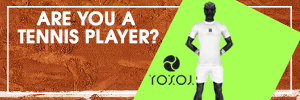

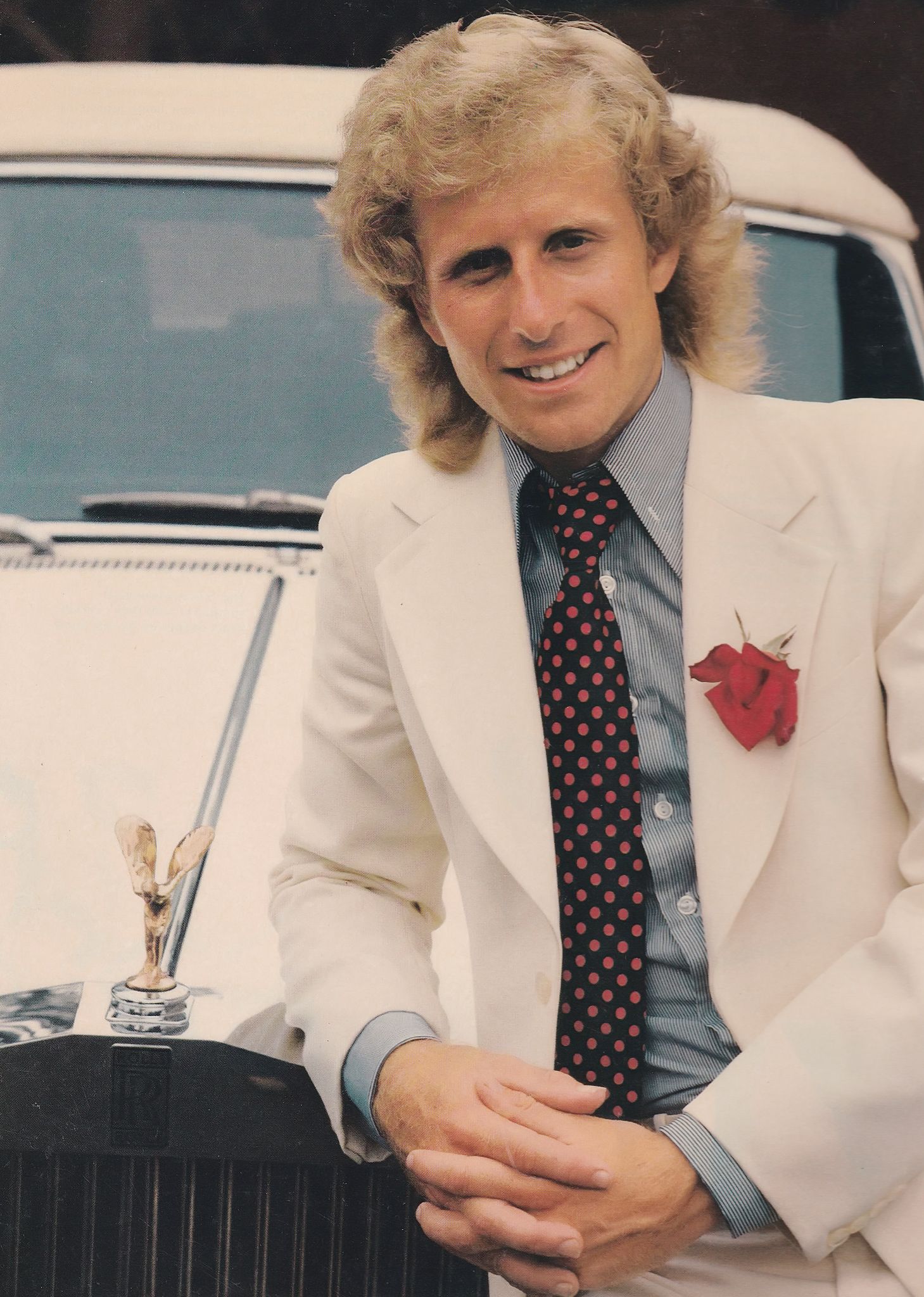
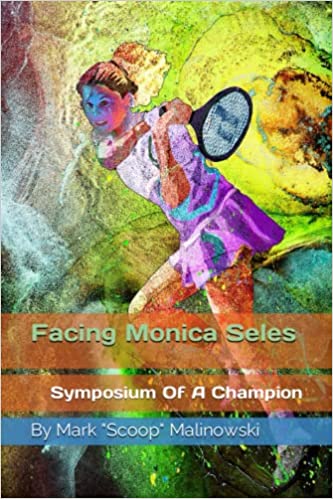
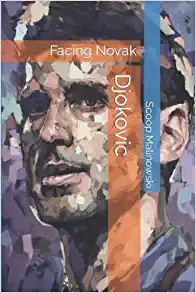
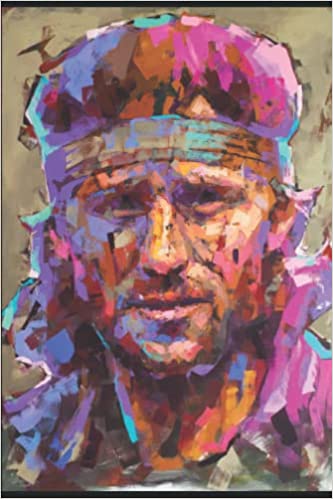
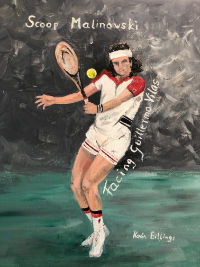
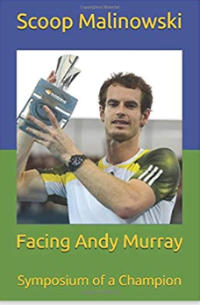
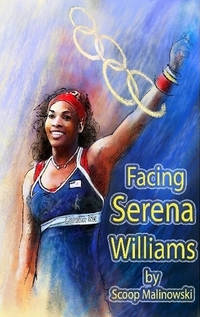
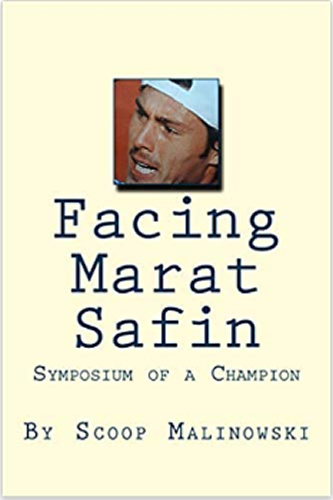
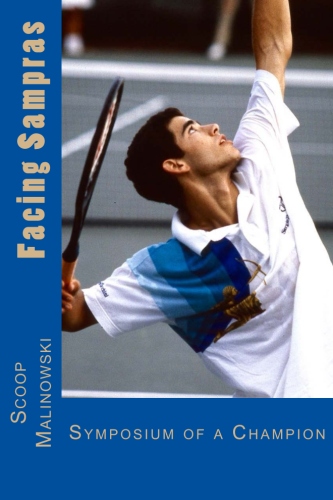
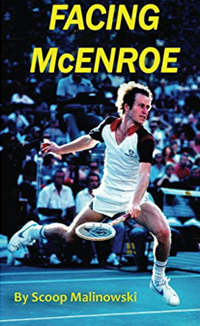
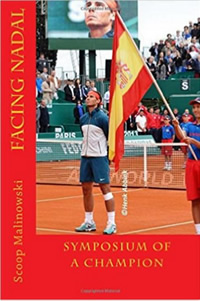
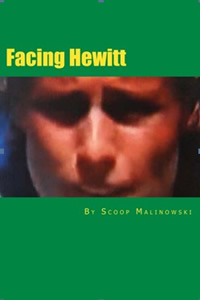
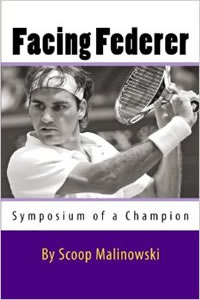
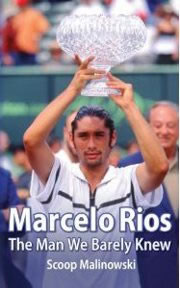

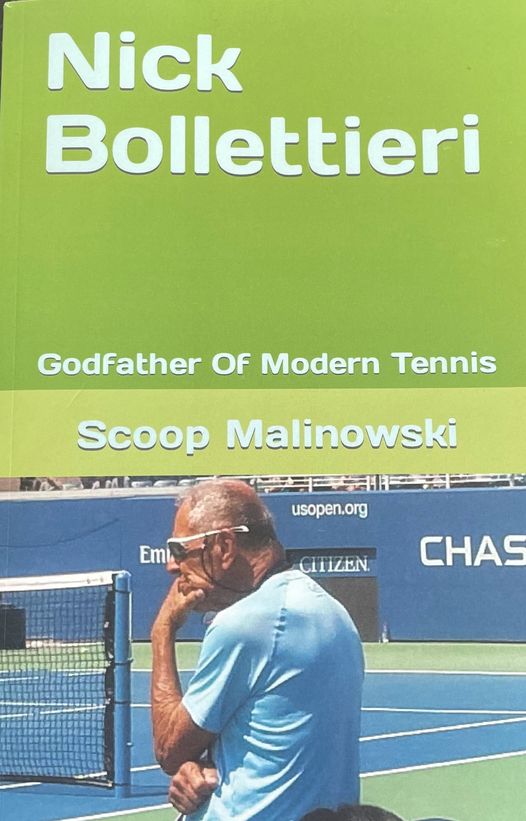
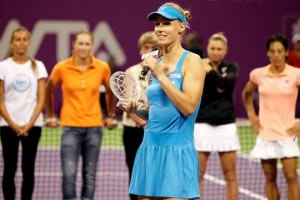
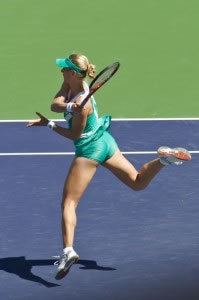

Scoop Malinowski · October 29, 2010 at 7:44 pm
Big surprise to see she is retiring. She was a class competitor, Olympic champ, always gave it her best, no nonsense. A great champion of tennis.
tom michael · October 29, 2010 at 7:55 pm
I was just tearing up reading this. I will miss her greatly. Seeing her fight for a win day in day out was always entertaining. I knew everytime she stepped off a court after a match, she gave it her all. Very sad! But I hope she will find comparable happiness in retirement. When pros leave the sport, it is very hard for them to find something comparable in terms of a joy and a rush as playing professional tennis. So I hope she will be content, happy, and fulfilled in whatever she does from now on. God Bless!
Scoop Malinowski · October 29, 2010 at 10:20 pm
Richard really did a nice job with this touching piece. What an excellent photo which captures the respect the other players have for her. Watched her excellent win vs. Stosur, she played so well. Nice to see her go out with such a nice win in her second to last match. Wonder when she made the decision to retire? I did her Biofile in Philadelphia several years ago. will try to find that and post it next week.
Sakhi · October 30, 2010 at 2:08 am
Excellent and thoughtful piece. I think one of the most noteworthy things is the professionalism with which she approached her sport. I had the pleasure to watch her play several times and her athleticism was beyond impressive. I do hope she gets inducted into the Hall of Fame. Hell, given the fame Anna Kournikova has garnered for doing absolutely nothing, here’s a different example of someone who is also a blonde beauty, but can in fact play like a champion.
I hope she stays connected to Russian tennis. I would like to see more of her in one form or the other.
Richard Pagliaro · October 30, 2010 at 12:35 pm
Sakhi:
Agree with you: I hope she stays connected with Russian tennis. She loves the sport, she’s given so much to it and as you said sets an example as someone who played and conducts herself like a champion.
I hit with Tommyboy the other day and he showed a Dementieva-like ability to strike with the forehand swing volley! I don’t think he missed that shot all day – Well done Tommyboy. I remember watching her the year she made her first US Open semifinal. She got blown out by Davenport in the first set (did not win a game if I remember right) but refused to give up and came back to make it a close, competitive second set and the crowd really responded to her and the fact she refused to give up.
Always respected her for that – no matter how bleak things looked, no matter how futile her serve could appear she always kept fighting.
She played some of her best tennis the past 3 years winning the gold in 2008, nearly knocking Serena out of the Wimbledon semis in ’09, which I thought was the best match of last season, and then of course reaching the French Open semis this year and retiring for the first time in a major vs. Schiavone.
Sakhi · October 31, 2010 at 12:33 am
Sorry, one last comment. As an university professor, I have to add that what I’ve most enjoyed about the tennis players, such as Dementieva, is their ability to hold a conversation OUTSIDE of tennis. I speak Russian, for instance, and have for long admired Dementieva’s grasp of world affairs and of issues at large. She’s always been a voracious reader and has expressed a desire to continue her studies, at least in the interviews she gives to European journalists. The same is true for Vera Z. I emphasize this because we place so much import on the well-rounded dimensions of players and how college education is such a big deal (Isner’s claim to fame, I would argue, is just as much that endless match he played, as his completion of a college degree!) that it’s equally gratifying to speak to the intellectual strengths of the players on and off the court.
Stay in school, kids! That’s the mantra here.
Scoop Malinowski · October 31, 2010 at 12:48 pm
Well said Professor Sakhi. Zvonareva also is a very intelligent person, myself and RP listened to her at last years US Open interview room 3, breakdown the difference between Pennetta and Schiavone and we both were awed by her analysis. It was fascinating to listen to her. She could be an excellent tennis TV commentator right now, and English is not her strongest language. Plus she is going to school to be a diplomat. The smartest players are the best players, and Dementieva and Zvonareva are examples of it.
vinko · October 31, 2010 at 1:31 pm
While education is important for all of us the unfortunate fact is that major college athletics and education do not mix anymore. There was a time when Arthur Ashe and Stan Smith could have academic and athletic achievements but that was a long time ago. Today if you are recruited to a university for sports your priority had better be sports or they will yank your scholarship in five minutes. Athletic recruits are expected to spend hours practicing, weight training, traveling, and competing. They are put into joke courses such as “sports and society” and into a major called “sports management”. A recruit who said he wanted to sign up for physics or biology and will get a quick reminder of why he was brought to the university.
Richard Pagliaro · October 31, 2010 at 4:47 pm
It’s a good point about the cultural adjustments players make at a very young age (in some cases) and the intelligence required to do it. We (Americans) are spoiled in that many speak one language and expect everyone else to know ours. My life-long goal has been to become fluent in Spanish (can understand some Spanish but speak little of it), Italian, Jamaican and the kick serve. Sadly, I’ve made little progress in that aim.
“it’s equally gratifying to speak to the intellectual strengths of the players on and off the court.” Well said Professor Sakhi.
Yes, I remember that interview with Vera Z in the small interview room. Tremendous insight into the game. She basically dissected Schiavone and Pennetta’s games, tactically, technically, temperamentally, and she made the point that though their skill sets are in some cases completely different they are equally effective in many ways. Based on that answer alone you could tell how sharp she is and she gave that thorough answer in English, obviously not her first language. Very impressive and it was refreshing to hear a player actually give you some depth and detail other than the “I just gotta go out and play my game and we’ll see what happens…”